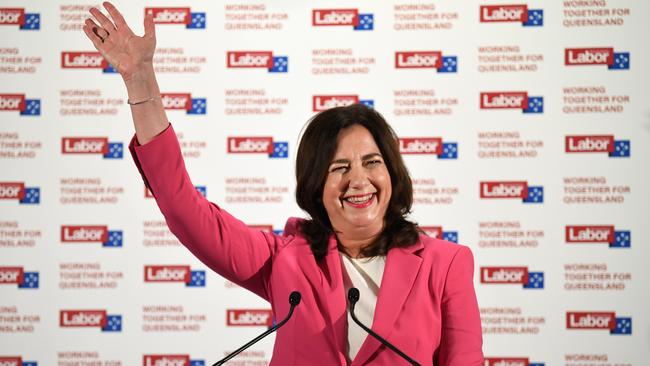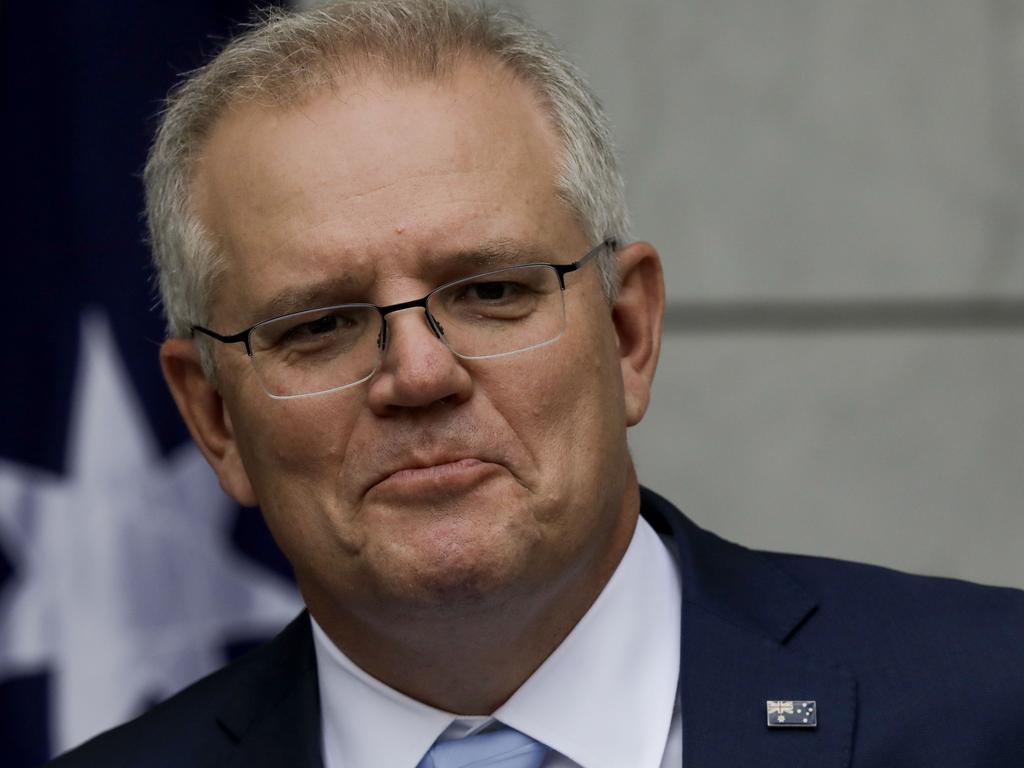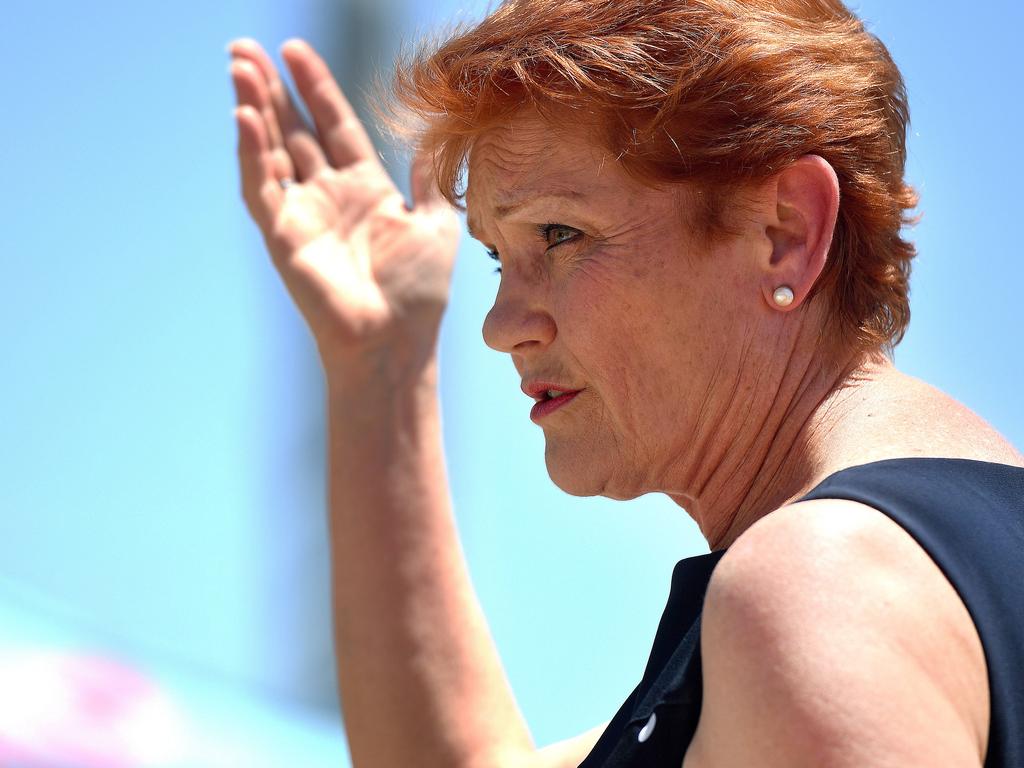Politics of the pandemic is choosing the winners

How sweet it would be for Scott Morrison had the federal election been scheduled for next Saturday. He could surf back into office on his handling of the coronavirus. The timing would have been damn near perfect. The Prime Minister would have been able to ride over the top of any lingering angst after forcing Christine Holgate to quit Australia Post, with his calculated bash at the top end of town worthy of a Bill Shorten, a Bernie Sanders or a Jeremy Corbyn.
Smells of dubious land deals, Angus Taylor’s dodgy documents and sports rorts would waft away. A proposal for an integrity commission more lamb than lion would barely rate a mention. Any missteps in Morrison’s handling of COVID-19, such as opposing school closures, border barriers, lockdowns and wages subsidies or why he failed to protect old people in nursing homes, would be swept aside.
Morrison’s answer to everything would be the recitation of one number. No, not to boast about the lowest interest rates ever. His daily mantra would be the coronavirus case numbers here, compared with Britain, Europe and (more quietly) the US.
Incumbency, strong messaging and strong leadership have helped carry across the line — some more handsomely than others — Jacinda Ardern in New Zealand, Andrew Barr in the ACT, Michael Gunner in the Northern Territory and Annastacia Palaszczuk in Queensland. Every leader with a microgram of decency has understood there can be no healthy economy if the health of their people is not safeguarded first. So they acted accordingly.
Unfortunately for Morrison, there is no federal election this weekend, and there won’t be for at least a year. Although he will still be the favourite, no one is game to predict what the climate will be like then. An effective vaccine will mean the main focus is the economy. If there isn’t one, there is the danger of a second COVID-19 wave here next winter, as has happened in Europe.
So politicians, campaigners and addicts have been left to sift through the Queensland results, searching for clues with federal implications, trying to figure out what worked, what didn’t and why.
One area of concern is the retirement of sitting members with the potential loss of their seats. Labor picked up three such seats on Saturday. There are two federal government MPs from Queensland planning to leave.
The first is the widely admired and outspoken Warren Entsch in Leichhardt, whose seat, despite its handsome margin, almost certainly would be lost to the government if he follows through. At this stage, so disillusioned is he with the state of politics that he is determined to go. Entsch is a small-l liberal who takes on causes assumed to be wildly unpopular in the deep north, such as same-sex marriage, yet he continues to win. He worries now there is too much politics and not enough policy.
When he quit a few years ago to look after his teenage son, there was a 16 per cent swing that handed Labor the seat. Three years later in 2010, with the blessing of his son, Entsch ran again and won. Leaders before and since have begged him to stay. Unless some “seismic” event occurs that affects his electorate, he is out and not even Morrison can stop him
The second is Ken O’Dowd in Flynn, who increased his margin at last year’s election. O’Dowd has told locals he won’t go round again and word is former cabinet minister Matt Canavan, now in the Senate, is considering running there.
If Canavan does, it will set off another bout of Nationals leadership speculation centring on Canavan’s ambitions or those of his good friend Barnaby Joyce. Win or lose in Flynn, assuming Michael McCormack makes it to the election, which is always doubtful, it opens up a world of pain for the Nationals and the Coalition. Senior Liberal National Party figures are hopeful they can retain the seat if Morrison’s popularity holds up, but if both seats go Morrison, with a two-seat majority now, will have to make up the losses.
One lesson for Labor is that the LNP failed to make the case for change. That is not easy to do even in normal times, and in these fearful times there was no sustained, convincing campaign to convince people they would be safer or better off under the LNP.
LNP leader Deb Frecklington was caught between two constituencies: businesses, particularly those reliant on tourism, that wanted the borders open, and vulnerable older people who felt safer with them closed. She swung from one to the other, first calling for borders to open, then pledging to rely on medical advice. Palaszczuk never wavered.
This is where Morrison’s decision to spend a week campaigning in Queensland was ill-judged. It never works when a popular leader tries to prop up an unpopular one. And as Labor has since pointed out, his presence only reminded Queenslanders of Palaszczuk’s resolve to keep the borders closed in the face of his “bullying”. It made her look even stronger and translated into a net benefit for Labor. Strange the Prime Minister has not appeared anywhere in the aftermath to provide his analysis but we are assured by “informed” commentary that he would not be troubled by a Labor victory.
It was not Frecklington’s failings alone that were responsible for the disaster; there is a corporate responsibility, too. The implications are not lost on federal Liberals. In all likelihood they will base their campaign in Brisbane again, as they did so successfully last time, because the local organisation cannot be trusted to run it unsupervised and because Queensland will be so critical to Morrison’s re-election strategy.
Labor has not ruled out the possibility of also taking up residence in Brisbane. If it happens, it will be the first time both major parties have headquartered their campaign teams outside of NSW and Victoria.
Both sides also are contemplating the meaning of another near-death experience for One Nation, which relies as ever on the mood of its volatile leader. Pauline Hanson needs an issue to fire up her supporters. She chose the wrong one this time, angrily opposing border closures and telling Queenslanders they had to learn to live with COVID-19. Many decided they would rather live without Pauline. Having decided that, they did not swarm back to the LNP, they went to Labor, deciding Palaszczuk would better protect them from the virus. Having voted Labor once, the risk is they could be tempted to do it again.
The big relief for federal Labor, which has been psychologically buoyed by the result, is that it sees no lasting damage to the brand from last year’s election. It figures that with the right campaign and the right policies, it can pick up some federal Queensland seats.
Liberals still remain confident, as of today at least, of Morrison’s greater popularity there. “Frecklington was no Palaszczuk, but nor is Albanese,” one says, describing him as “an inner-city left-wing ageing male from Sydney”. Ouch.




